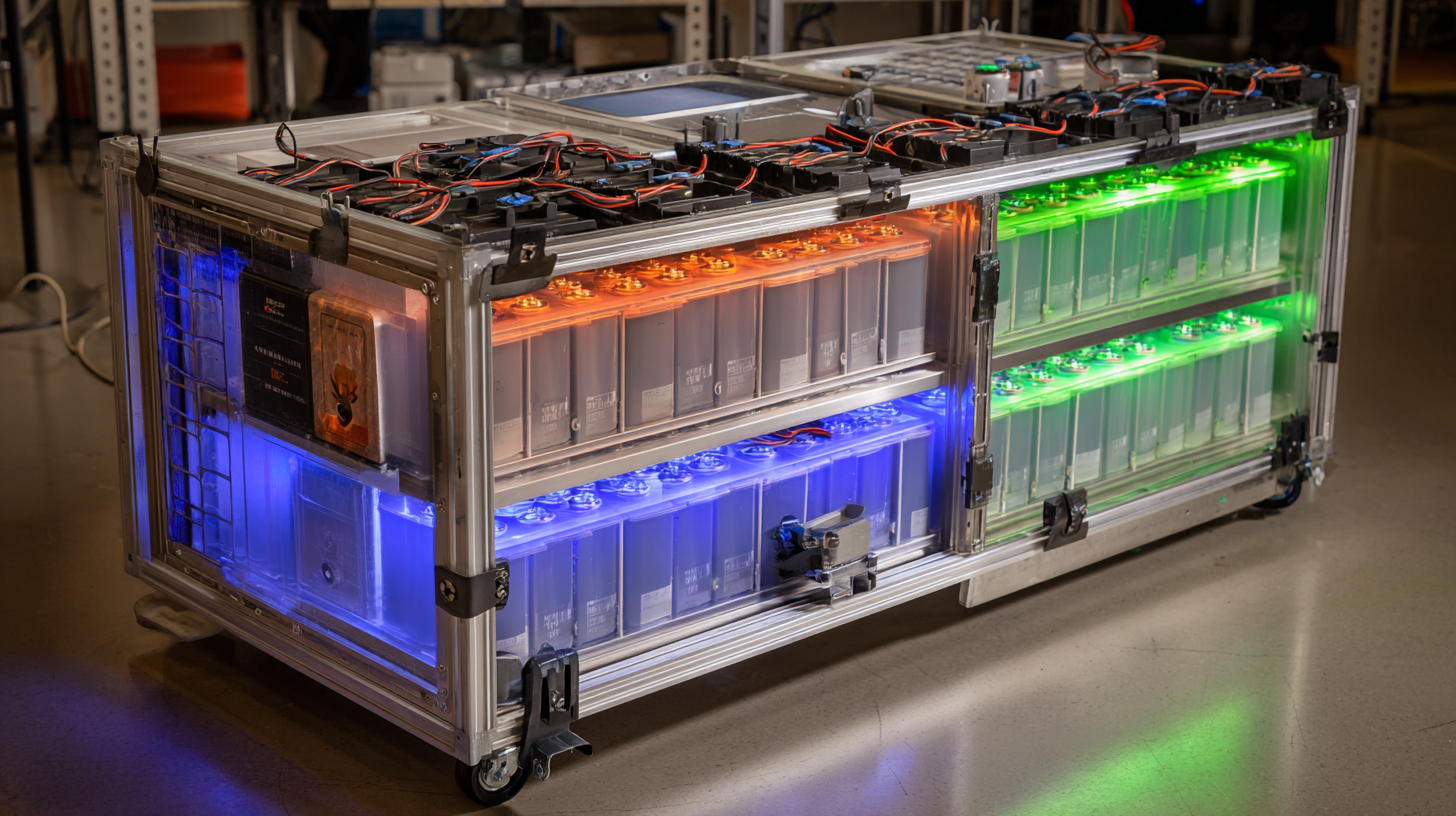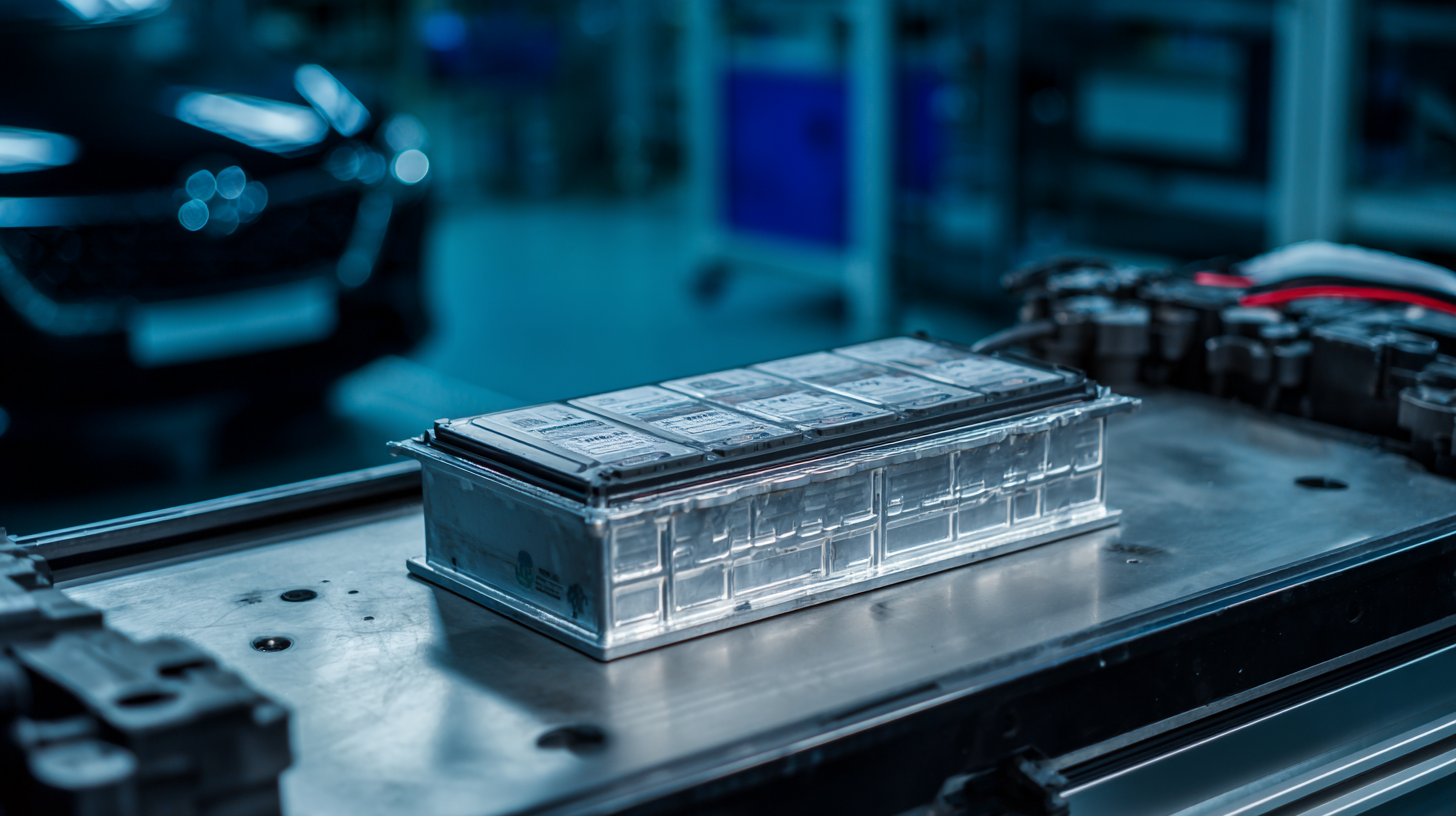In the rapidly evolving landscape of energy storage solutions, the concept of Lithium Battery Rejuvenation has emerged as a pivotal focus for both manufacturers and consumers alike. As we approach 2025, the demand for sustainable and cost-effective energy sources continues to rise, prompting innovations that not only enhance battery performance but also extend their lifespan. This blog delves into the latest technological advancements trends and alternative approaches to rejuvenating lithium batteries, emphasizing the significance of superior after-sales support and cost efficiency in maximizing value. By exploring these cutting-edge strategies, we'll uncover how companies can not only improve their bottom line but also contribute to a more sustainable future through effective battery management practices. Join us as we navigate the critical intersection of technology and sustainability in the realm of lithium battery rejuvenation.

The performance and longevity of lithium batteries remain significant challenges as their applications expand in electric vehicles (EVs), portable electronics, and renewable energy storage. According to the International Energy Agency (IEA), global electric vehicle sales surged past 6 million units in 2021, marking a 108% increase compared to the previous year. This demand heightens the importance of optimizing battery performance, as higher energy density and charge cycles can directly impact the usability and efficiency of these technologies.
Furthermore, a study by the Department of Energy identified that degradation of lithium-ion batteries can result in a 20% decrease in capacity after just 1000 charge cycles, severely affecting battery life. The two primary factors influencing battery longevity are temperature and charging practices. Implementing advanced management systems and superior after-sales support can mitigate these issues, guiding users on optimal charging and storage conditions, thereby significantly extending the operational life of their lithium batteries. As the market continues to evolve, focusing on cost efficiency alongside robust support will be crucial for maximizing the overall value of lithium battery investments.
Lithium batteries are a cornerstone of modern technology, powering everything from smartphones to electric vehicles. However, their lifespan often falls short of expectations due to various common issues. One prevalent problem is the degradation of battery cells over time, which can be accelerated by extreme temperatures and improper charging habits. Users often neglect to monitor their charging cycles, leading to overcharging or deep discharging, both of which can significantly reduce the battery's overall lifespan.
Another key contributor to diminished lithium battery performance is electrolyte breakdown, which occurs as the battery ages. This issue is often overlooked by consumers who are unaware of the role that maintenance and temperature management play in battery health. By identifying and addressing these common problems early, users can implement more effective care strategies. Best practices include regular monitoring of battery health, storing devices in moderate temperatures, and avoiding complete discharges. By focusing on these aspects, users can maximize their battery's lifespan and performance, ultimately leading to greater cost efficiency and better overall value from their lithium-powered devices.
In the rapidly evolving lithium battery market, rejuvenation strategies are essential for enhancing battery efficiency and maximizing value. Studies indicate that effective rejuvenation techniques can restore up to 80% of a battery's original capacity, significantly extending its lifecycle. According to a report by the International Energy Agency (IEA), nearly 90% of battery degradation is reversible, highlighting the importance of after-sales support in implementing effective rejuvenation practices.

Investing in superior after-sales support facilitates access to advanced diagnostic tools and maintenance strategies that can improve battery performance. Data from the Battery Data Collaborative suggests that regular maintenance and proper management can reduce replacement costs by up to 40%. Moreover, companies utilizing optimized rejuvenation processes report a decrease in total lifecycle costs by an average of 25%. This focus not only aids in prolonging battery life but also enhances overall operational efficiency, making it a compelling strategy for organizations seeking sustainable energy solutions.
After sales support plays a pivotal role in the maintenance and rejuvenation of lithium batteries, significantly impacting their lifespan and efficiency. According to a report by the International Energy Agency (IEA), lithium-ion batteries can experience a degradation of up to 20% in capacity after just a few years of use without proper maintenance. Superior after sales support not only involves addressing customers' concerns but also includes regular monitoring and maintenance services that can help identify issues before they lead to costly failures.

Furthermore, recent studies indicate that effective after sales support can increase the performance of lithium batteries by up to 30% over their operational lifetime. By implementing proactive maintenance strategies and offering timely replacement services, companies can maximize the value of their battery systems. For instance, a 2022 market report by BloombergNEF highlighted that batteries with comprehensive support packages maintain their charge capacity longer than those without, showcasing that a commitment to post-purchase care can lead to significant cost efficiencies and extended product lifespan.
As the demand for lithium batteries continues to rise, finding cost-effective solutions to maximize battery value is essential for both consumers and businesses. A key component in achieving this goal is implementing effective battery rejuvenation techniques. By focusing on methods that extend the life of lithium batteries, users can significantly reduce their long-term expenses. This not only helps in maximizing the performance of existing batteries but also aids in lowering the overall environmental impact associated with battery disposal and replacement.
Moreover, exceptional after-sales support plays a crucial role in ensuring customer satisfaction and fostering brand loyalty. Offering guidance on battery maintenance, troubleshooting issues, and providing information on cost-efficient rejuvenation solutions can enhance the overall experience for customers. Companies that prioritize customer support and education create a knowledgeable user base that is more likely to invest in additional products and services. By aligning business strategies with a focus on cost efficiency and superior after-sales care, organizations can create a more sustainable business model while simultaneously maximizing the value proposition for their clients.
